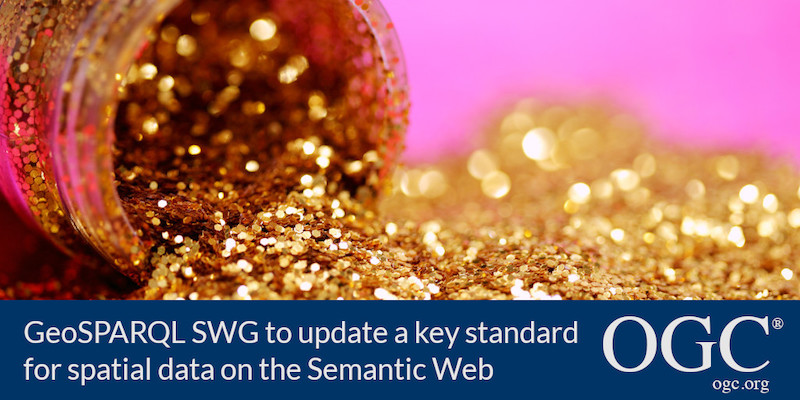OGC Standards Working Group will provide a major update to a key standard for representing and querying spatial data on the Semantic Web.

The Open Geospatial Consortium (OGC) seeks public comment on the draft updated charter for the OGC GeoSPARQL Standards Working Group (SWG). The GeoSPARQL SWG will revise, and likely extend, the GeoSPARQL standard. Comments are due by August 6, 2020.
GeoSPARQL is a standard for the representation and querying of geospatial linked data for the Semantic Web.
Since the release of GeoSPARQL in 2012, there has been growth of both the Semantic Web and spatial information represented in Semantic Web form, with GeoSPARQL being widely used for spatial Semantic Web data.
As with many standards that see widespread use, suggestions for enhancements and extensions are made by users as they extend beyond the requirements used to define the original standard. Additionally, subsequent technological developments or knowledge gained in the use of the standard leads to new requirements.
The overall mission of the GeoSPARQL SWG is to ensure that the features of GeoSPARQL remain up-to-date with the Semantic Web community whose needs now outstrip the current content of GeoSPARQL.
This revision will likely result in a major update of GeoSPARQL that will form a new base Semantic Web standard for people working with spatial data. The update will include consideration of backwards-compatibility with GeoSPARQL 1.0 as a key requirement.
More information on the need to update GeoSPARQL is contained in the draft charter.
The draft charter for the OGC GeoSPARQL Standards Working Group is available for review and comment on the OGC Portal. Comments are due by August 6, 2020, and should be submitted via the method outlined on the OGC GeoSPARQL Standards Working Group Draft Charter public comment request page.
Participation in the GeoSPARQL Standards Working Group is one of the many benefits of becoming an OGC Member. Consider becoming a member today to help advance GeoSPARQL and other important location standards.
About OGC
The Open Geospatial Consortium (OGC) is an international consortium of more than 500 businesses, government agencies, research organizations, and universities driven to make geospatial (location) information and services FAIR – Findable, Accessible, Interoperable, and Reusable.
OGC's member-driven consensus process creates royalty free, publicly available geospatial standards. Existing at the cutting edge, OGC actively analyzes and anticipates emerging tech trends, and runs an agile, collaborative Research and Development (R&D) lab that builds and tests innovative prototype solutions to members' use cases.
OGC members together form a global forum of experts and communities that use location to connect people with technology and improve decision-making at all levels. OGC is committed to creating a sustainable future for us, our children, and future generations.
Visit ogc.org for more info on our work.
“
